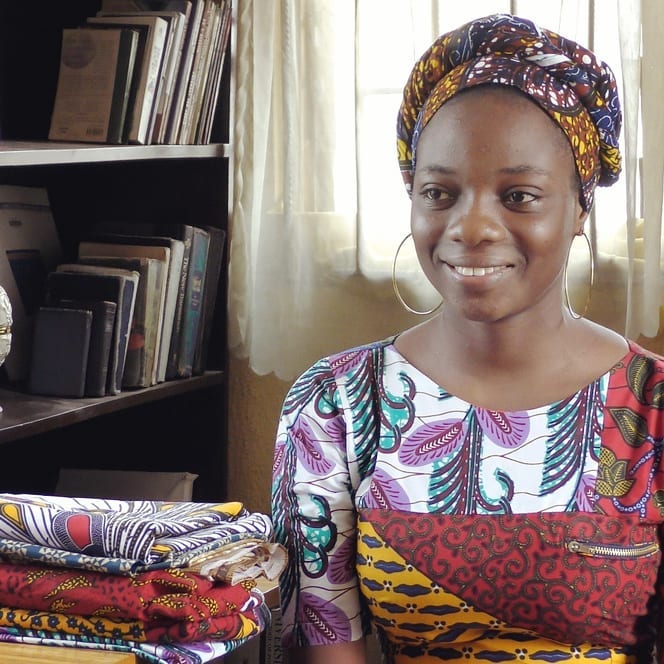We met with James Amuta, a filmmaker based in Lagos. He has worked on films like Oloture, Collision Course and many others. He explains why it is inevitable for the government to build a film industry infrastructure. We were honoured to have this insightful talk with him.
Joadre: Is it the culture in the film industry to wear multiple hats, or is it an economic urgency?
James: It is not the culture; your capability often demands it. Above all, the environment calls for flexibility. Others have employed me to serve in multiple capacities. It is a function that comes from years of experience, passion, and interest. There are filmmakers gifted in creating the entire process of the films, from scripting to editing. They control the whole process. It is tedious. It is not something you acquire overnight. I have worked in different capacities. I started pretty early. I started in 1996. I think I was 15 years old when I shot my first work.
Joadre: What challenges do you face as a film industry creative?
James: Many challenges affect my work, but I live in Lagos and am a Nigerian. We are very tenacious people; we do not see closed doors. We will break that door down. We keep moving forwards. Everything is rigged against the entire creative industry in Nigeria, but things are changing gradually. We need that enabling environment to make films. You have to find funding privately. We have to use actual locations. No film village, studio space, no sound stage. In terms of equipment, we are just catching up. A lot of these film you see is made small, and the budget is kept to a minimum so that they can break even. You must be crazy to want to do international production, but I am crazy, so I want that. If you are creative, you have that creative disease or addiction. You can’t help it.
Joadre: Looking at your film set alone, it is obvious how much the film industry contributes to the Nigerian economy. Should the government be invested in developing the sector, or is it better to keep the whole space private economy?
James: The government has a whole lot of things to do. Right now, there are a bunch of people running this industry. The entire sector is privately financed. The government had initiated different programs to help Nollywood, but it was more targeted at those creating lower-budget films with up to 10 million or less. If you venture into projects above 25 million, you must fund privately. We are not asking for government money; we need more infrastructural support, like a physical structure. The government has land; for example, take the Lekki free trade zone with all the large manufacturing going to happen there. The film industry needs its own space where you can have significant players like Trino Studios, FilmOne, Inkblot, Ebony Life and such. We need security, backlot insurance, and negative production insurance. We carry expensive equipment without insurance. The government can partner with filmmakers to promote Lagos as an economic hotspot, just like New York did with the film industry. They sell locations through film.
Joadre: What other films have you worked on? And How do you decide which film is next?
James: I am driven by the need to impact society. The film Oloture is about human trafficking. When I read the story, I knew this was very important. Something has to be done about our girls being trafficked to Europe. Many die, and their stories have to be told. Then from Oloture, I went to work on the film Collision Course, now streaming on Netflix. When the #Endsars happened, it was the right time to address this issue – Police brutality. Collision Course is a film about the broken system that has given birth to corruption in the police and their impunity. On these films, I served as a producer, working with brilliant directors and a great team.
Joadre: As an artist, do you believe art can transform society?
James: Yes, absoluetely. That is my job. Every artist should use their skills to help society, tell truths, and correct wrongs where possible. I see society as a wall; it is broken or cracked. You try to fix the crack so the wall does not fall or paint on it. Your work is like a photograph of the wall. You show people to decide whether to fix or paint on it. But then, the photograph of the wall will probably get it fixed if that is the superior argument. As an artist, I do not have the tools to fix it. I am not a doctor, and I am not an inventor. But I want to contribute to society. I want the next neurosurgeon from Nigeria to survive and not be killed on his drive home because the police want a bribe.
Thank you James for sharing.🙏🏾
About: James is a filmmaker that wears many hats. James likes to call himself a creative entrepreneur. He founded the James Amuta company, a bespoke media production company that started by representing big clients with marketing materials – from the government, big hotels, documentaries, to infomercials. James is a cinematographer, producer, director, writer, and poet.
Connect with us, and get our app.
Our Joadre organisation runs a film production branch which aims to connect African filmmakers with their European counterparts to develop projects that cut through the shared historical experiences of both continents. Alongside our film production, we created our one-stop digital incubator app to bridge knowledge and service discrepancies for African students and savvy entrepreneurs looking to start a business. Get the app (Android version) here. For IOS users, a web app is available here at https://tribe.joadre.com. Sign up for our newsletter here to get consistent resources via email. If you want to contact us, use our contact form or consult us through the app.
Thank you for reading to the end.
Cheers
Joadre




